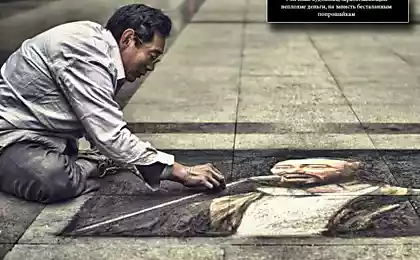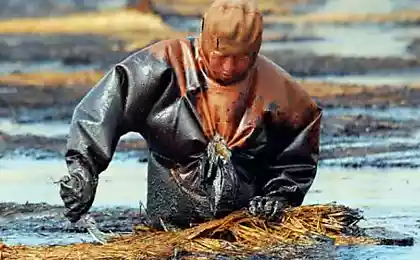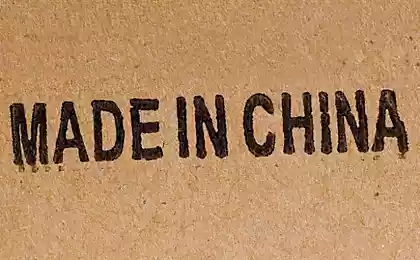1016
10 popular stereotypes about China that c true and some were not


Traveler, teacher of kung fu and a good person and friend edition Site Masha Pipenko loves and knows China. She wrote us not one post about this country (one, two and three). This time she tried to debunk all those offensive stereotypes that pop into our heads when we think about China and the Chinese.
Let's face the truth: the Chinese all over the world not liking. This attitude is caused and unceremoniously, from a Western point of view, the behavior of Chinese tourists, and carefully supported by mediabase a developing country with wild habits, and superficial impressions of tourists and expatriates.
I as a man, tenderly loving China and Chinese people, is sad to see the first is not always a positive impression generates a biased negative attitude and unwillingness to learn about this amazing country. I decided to collect the most often used stereotypes about the Chinese and to share their vision about what is really going on.
- The Chinese have absolutely no manners. They slurp, slurp when you drink tea, spit and shove. In principle, Yes! Slurp, slurp, spit and shove. That's just it all relates to our understanding of "manners." From the perspective of the Chinese people, educated people, has quite different qualities which many foreigners, alas, often not. To blow his nose into a handkerchief, to call a senior person by name, be allowed to pay a friend for lunch, take the place of honor opposite the door — all this is a gross violation of Chinese etiquette. Just a polite Chinese never you will not tell about it. To a man on his error — means to force him to "lose face". And educated Chinese do allow. What may seem to foreigners, but the Chinese first think about the convenience of others. "We are so trying to understand what others need that you simply are not able to formulate what they want themselves, even in thought" — once shared with me friend.
- Cruel Chinese eat dogs and cats. Pictures with trucks full of poor animals being taken to the festival of eating dog and cat meat, and wander from edition, frightening fondness for cats reach of the Internet and causing the most negative attitude. I'm not going to engage in a discussion about why there are cows, pigs and horses is considered normal, and eating dogs is cruel. Simply quote the words of his Chinese students: "How can you have dogs? They're our friends! On TV, in the Newspapers always write that we should take care of them and not to offend". If people eat dogs in China? Sometimes. But the phenomenon is spread about as widely as swimming in an ice hole in Russia. That is, of course, there are people who do it, but their number is negligible. Not worth it for them to make judgements about the entire population of the vast country.

- All Chinese look the same. No, no and no! Apart from the fact that Malaysian Chinese are very different from, say, Singapore, in mainland China it is possible to differentiate southerners from northerners. Of course, when you come to China for the first time, the abundance of dark-haired, brown-eyed, Asian people mixed in one solid spot, but after a couple weeks you begin to see what they are all different.
- All the Chinese low growth. This first "short stature" of the Chinese was related to their diet. Over the last 20 years in connection with the General welfare of the Chinese great grew up. It is especially noticeable when comparing the growth of students from big rich cities and poor villages. The more in the diet of animal protein, the higher children. One of the kung fu masters, with whom I worked, told me that to 17 years, while he lived in his village, he ate meat once a year. Now everything has changed. Personally, I'm with my meter seventy I don't feel like a giant in the car Shanghai subway next to a group of some teenagers, who are often higher by a whole head, maybe more.
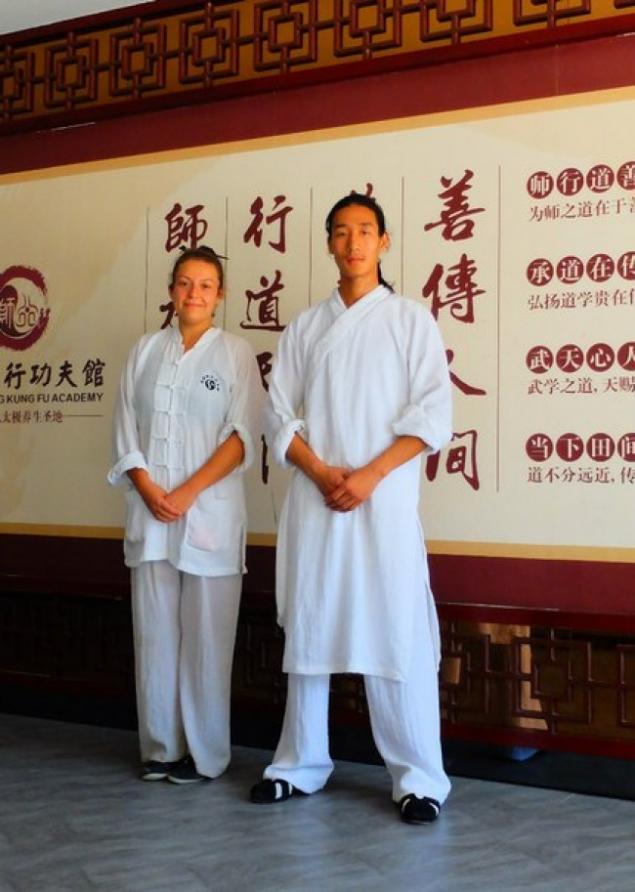
- Chinese goods are of low quality. Of course, a large number of cheap Chinese things leaves much to be desired. But if you turn your iPhone, look at the labels Reebok or Adidas, bought in retail stores, you will see all the same cherished Made in China. The quality of the product defines the customer, not the manufacturer, therefore, all the claims of the people determines cost and quality of production, and not to those who carry out the order.
- China is a cheap country. That's what I keep hearing, and it's something that is completely untrue. First, there is a huge gap between the cost of living in big cities and in the provinces. For example, in Houdan, a small town in Central China where I live, you can rent a large comfortable apartment for $ 200 per month, while in Shanghai, you can hardly find a small one-bedroom in the range of 500 $. The same iPhone in China costs more than in Russia (despite the fact that I produce them here). The only thing China really cheaper than in Russia or in the West, is eating out.
- The Chinese eat almost one Fig. One of the most frequent questions I get asked: "do You live in China for 3 years, aren't you tired of eating rice?" Guys, Chinese cuisine is one of the most diverse in the world. Let's start with the fact that the amount of vegetables here much more than in the West. Not to mention the methods of cooking and variety of spices. Only one of the fillings for dumplings more than 100. Rice is eaten as a main dish, rather it performs the function of our bread. In restaurants it is usually served at the end of the meal, in case if you not satisfied. Chinese cuisine is the endless choices depending on the season and region, but not the rice and noodles as suggested by many.
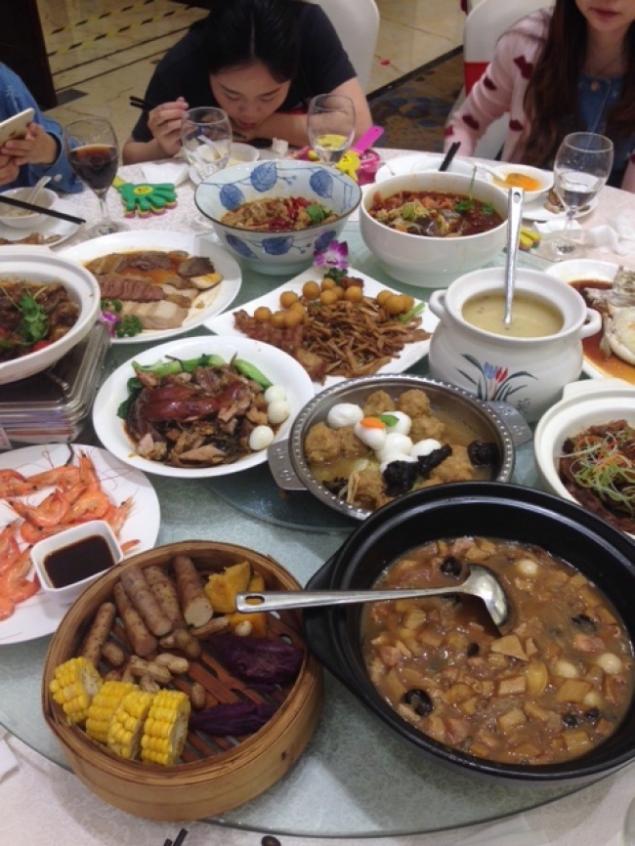
- Disproportionately severe punishment for drug-related offences. The cruelty of the punishment outraged most foreigners. Unlike the other items on this list, it's not a stereotype, and the truth — in China are very strict with this. For the storage, use and distribution of drugs believed to be a punishment from lengthy prison sentences to the death penalty. But it's not a whim and not intentional cruelty, it is a necessity on which depends the welfare of the country. If you delve into history, then POPs up an interesting fact. In the XIX — early XX century, the smuggling of opium from Britain about a third of the population of China were opium addicts. So Britain hoped to increase its influence and force China, who did not want to trade with the West, make favorable conditions (which it as a result and failed). To cope with the widespread drug addiction was only in the mid-twentieth century, after the arrival of Mao Zedong to power. It is not surprising that the Chinese government is doing everything possible to prevent this from happening again.
- All Chinese — kung-fu. And all Russians play the balalaika. Indeed, kung fu is an integral part of Chinese culture. Almost every movie or TV show shot on a historical theme, includes episodes of kung fu duels, not to mention the numerous action movies where the main character is a kung fu master of antiquity or of modern times. Of course, the number of people practicing the different style, much more than in Russia or in the West, and in every Park you can find one, and then several groups of tai Chi Chuan, but most of them remain at a low level — the level of domestic football, so to speak.
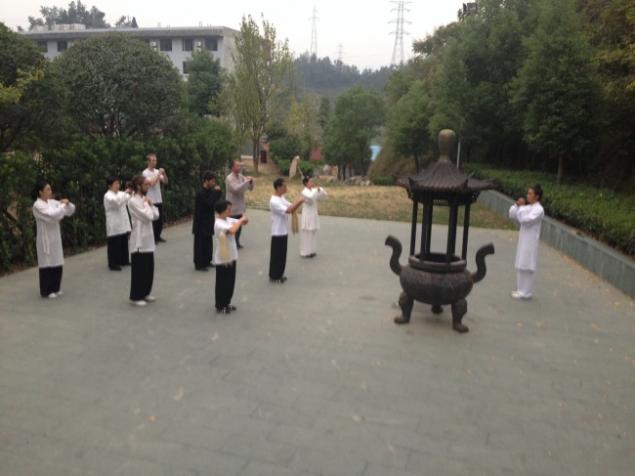
- One family — one child. Mindful of this myth, at first I did not even ask your friends if they have brothers or sisters until the conversations begin to emerge that almost everyone has a brother or sister, and sometimes none. It turned out that one child — a sign of the family in the big city, while in the province with two or three children is the norm. Parents just pay the fine when you register the child, and often leave the child unregistered. To live in his village all his life without papers is a pretty common scenario. By the way, from 1 January 2016, the Chinese were allowed to have two children, so now you can officially consider this stereotype untenable.
Of course, even a superficial contact with another culture can cause a lot of misunderstandings. The main thing — not to forget that we are all human. And instead of jumping to conclusions, try to get rid of feelings of superiority and try to understand what really lies behind the actions of people from another country
Masha Pipenko specifically for the Website
See also
15 things I learned after living two years in China
10 things about the Chinese school that I learned, having worked as a teacher in China
via www.adme.ru/svoboda-kultura/10-veschej-o-kitajskoj-shkole-kotorye-ya-uznala-porabotav-uchitelem-v-kitae-1350115/





